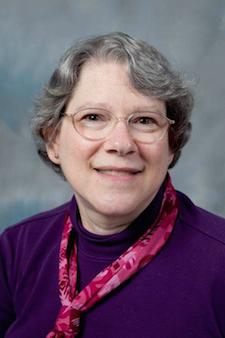Tina Kuhr: Navigating nuclear energy
Alexandra George
Feb 23, 2017

Source: Tina Kuhr
Since eighth grade, Tina Kuhr had wanted to be a nuclear physicist. As a high school student, Kuhr saw an ad from Carnegie Mellon University promoting women in engineering. “Why not?” the ad asked. Kuhr, who had always liked math and science, thought about what the ad was offering, and in 1977, Kuhr began her undergraduate career in mechanical engineering at Carnegie Mellon University.
Kuhr, originally from Slippery Rock, PA, is now a lead nuclear engineer at Duke Energy in North Carolina. She received her bachelor’s degree in mechanical engineering from Carnegie Mellon, with a second major in economics.
Competing priorities for time means finding the difference between important and urgent. Sometimes important projects get pushed to the side for the sake of higher priority projects.
Tina Kuhr, Lead Nuclear Engineer, Duke Energy Corporation
At Carnegie Mellon, Kuhr was one of only seven women in her mechanical engineering class. But she didn’t let it daunt her.
“I completed my degree in three and a half years, because of a mix of summer school and AP credit. It was right after the Three Mile Island reactor accident. I graduated on a Friday, moved out on Saturday, and began my first job at Babcock and Wilcox in Lynchburg, VA, in the nuclear industry three months later,” said Kuhr.
Thermodynamics was her favorite subject, which led her to enter a career in the nuclear field. Kuhr’s first job involved design work on control systems for nuclear power plants. Her next job involved commissioning and later decommissioning emergency response facilities at one of the plants. It was here that she realized just how long projects could take.
“In undergrad the longest project you work on is a semester. In the workforce, projects can take eight years to complete from start to finish,” said Kuhr. “Competing priorities for time means finding the difference between important and urgent. Sometimes important projects get pushed to the side for the sake of higher priority projects.”
In the energy industry, things are operating 24 hours a day, seven days a week, 365 days a year. Projects can have tentacles, she says—one thing impacts another. If you change something and don’t analyze all of its consequences, it can come back later as a complication.
In industry, you need to be able to sell your idea. Those speaking and presenting skills are invaluable.
Tina Kuhr, Lead Nuclear Engineer, Duke Energy Corporation
In her current position, Kuhr deals with fleet emergency response procedures. In addition to hands-on work, she crafts licensing and regulatory arguments, and researches precedents for compliance. This experience informs her advice to aspiring nuclear and mechanical engineers—she recommends taking a technical writing course or something to be able to effectively communicate.
“In industry, you need to be able to sell your idea,” said Kuhr. “Those speaking and presenting skills are invaluable. You have to be able to convince a manager to spend money on your idea, in a concise way.”
Kuhr has worked at Duke Energy since 1982, and has been working in emergency preparedness since 1992. She is also the mother of two children and an alumna of the Delta Gamma sisterhood.